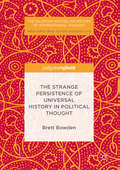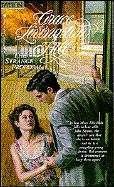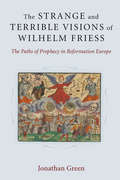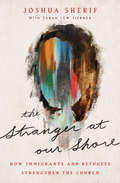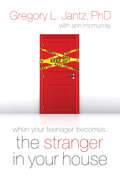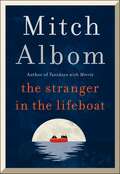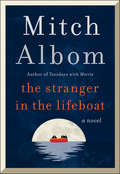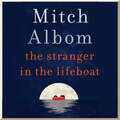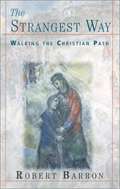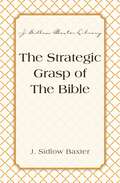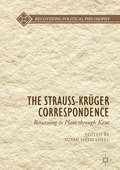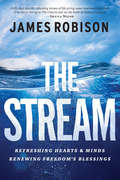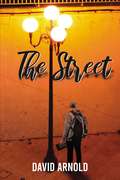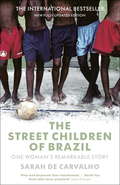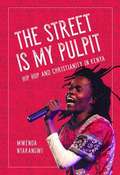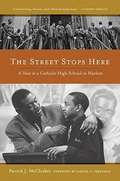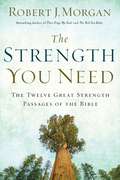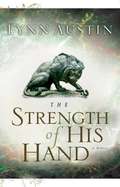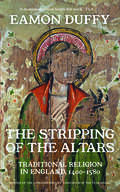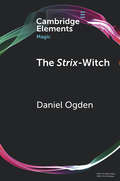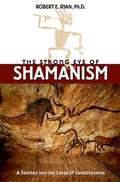- Table View
- List View
The Strange Persistence of Universal History in Political Thought
by Brett BowdenThis book explores and explains the reasons why the idea of universal history, a form of teleological history which holds that all peoples are travelling along the same path and destined to end at the same point, persists in political thought. Prominent in Western political thought since the middle of the eighteenth century, the idea of universal history holds that all peoples can be situated in the narrative of history on a continuum between a start and an end point, between the savage state of nature and civilized modernity. Despite various critiques, the underlying teleological principle still prevails in much contemporary thinking and policy planning, including post-conflict peace-building and development theory and practice. Anathema to contemporary ideals of pluralism and multiculturalism, universal history means that not everyone gets to write their own story, only a privileged few. For the rest, history and future are taken out of their hands, subsumed and assimilated into other people's narrative.
The Strange Proposal
by Grace Livingston HillMary Elizabeth Wainwright, carefree daughter of a famous family, had expected to have fun at her cousin’s wedding. What she hadn’t expected, however, was to end up being the maid of honor--or to have John Saxon, the handsome best man she met just before the ceremony, proclaim his love for her during the wedding recessional! Now many forces threaten to pull Mary Elizabeth and John apart: distance, social standing, finances, a lost love letter, belief in God, and a wealthy man who is determined that nothing--and no one--will stop him from claiming Mary Elizabeth as his own...
The Strange and Terrible Visions of Wilhelm Friess: The Paths of Prophecy in Reformation Europe
by Jonathan GreenAlthough nearly forgotten today, the prophetic writing of Wilhelm Friess was the most popular work of its kind in Germany in the second half of the sixteenth century. While the author "Wilhelm Friess" was a convenient fiction, his text had a long and remarkable history as it moved from the papal court in fourteenth-century Avignon, to Antwerp under Habsburg oppression, to Nuremberg as it was still reeling from Lutheran failures in the Schmalkaldic War, and then back to Antwerp at the outbreak of the Dutch revolt. Dutch scholars have recognized that Frans Fraet was executed for printing a prognostication by Willem de Vriese, but this prognostication was thought to be lost. A few scholars of sixteenth-century German apocalypticism have briefly noted the prophecies of Wilhelm Friess but have not studied them in depth. The Strange and Terrible Visions of Wilhelm Friess is the first to connect de Vriese and Friess, as well as recognize the prophecy of Wilhelm Friess as an adaptation of a French version of theVademecum of Johannes de Rupescissa, making these pamphlets by far the most widespread source for Rupescissa's apocalyptic thought in Reformation Germany. The book explains the connection between the first and second prophecies of Wilhelm Friess and discovers the Calvinist context of the second prophecy and its connection to Johann Fischart, one of the most important German writers of the time. Jonathan Green provides a study of how textual history interacts with print history in early modern pamphlets and proposes a model of how early modern prophecies were created and transmitted. The Strange and Terrible Visions of Wilhelm Friess makes important contributions to the study of early modern German and Dutch literature, apocalypticism and confessionalization during the Reformation, and the history of printing in the sixteenth century.
The Stranger at Our Shore: How Immigrants and Refugees Strengthen the Church
by Joshua SherifA gripping tale of escape from Egypt, The Stranger at Our Shore is the true story of one young man&’s journey out of Islam into new life in Christ. Through his remarkable testimony, Chicago pastor Joshua Sherif calls the Western Church to reconsider the plight of the modern day sojourners in our land—the strangers at our shore and the ones living right next door—and to return wholeheartedly to its first charge: making disciples. The book examines three ways believers harden their hearts towards the stranger and suggests three practical remedies to help us begin casting a wider net for discipleship in our communities. Though any reader will be captivated by the powerful story, any believer will walk away from this book feeling less intimidated and better equipped to disciple people who are different than them.
The Stranger at Our Shore: How Immigrants and Refugees Strengthen the Church
by Joshua SherifA gripping tale of escape from Egypt, The Stranger at Our Shore is the true story of one young man&’s journey out of Islam into new life in Christ. Through his remarkable testimony, Chicago pastor Joshua Sherif calls the Western Church to reconsider the plight of the modern day sojourners in our land—the strangers at our shore and the ones living right next door—and to return wholeheartedly to its first charge: making disciples. The book examines three ways believers harden their hearts towards the stranger and suggests three practical remedies to help us begin casting a wider net for discipleship in our communities. Though any reader will be captivated by the powerful story, any believer will walk away from this book feeling less intimidated and better equipped to disciple people who are different than them.
The Stranger in Your House
by Gregory L. JantzBest-selling author Dr. Gregory L. Jantz offers hope and help for parents of teens. Adolescence is a frightening and complicated time - for teens and parents. Keeping the roller coaster of the teen years on track takes work and wisdom. Many parents simply don't know where to start. With Dr. Jantz's help they can stop worrying about the turbulence of adolescence and take action. With included resources, reflection questions, and guidance from a Christian perspective, parents learn how to become a port in the storm for their teenager, discovering the God-designed future and promise that awaits.
The Stranger in the Lifeboat
by Mitch AlbomThe stunning new novel from the bestselling author of global phenomenon Tuesdays with MorrieAdrift in a raft after a terrible shipwreck, ten strangers try to survive while they wait for rescue.After three days, short on water, food and hope, they spot a man floating in the waves.They pull him on board - and the survivor claims he can save them.But should they put their trust in him?Will any of them see home again?And why did the ship really sink?The Stranger in the Lifeboat is not only a deeply moving novel about the power of love and hope in the face of danger, but also a mystery that will keep you guessing to the very end.'Mitch Albom sees the magical in the ordinary' Cecelia Ahern'He has the ability to make you cry in spite of yourself' Boston Globe'Albom has touched the lives of a lot of people he never even knew' Time
The Stranger in the Lifeboat: A Novel
by Mitch AlbomWhat would happen if we called on God for help and God actually appeared? In Mitch Albom’s profound new novel of hope and faith, a group of shipwrecked passengers pull a strange man from the sea. He claims to be “the Lord.” And he says he can only save them if they all believe in him. <P><P>Adrift in a raft after a deadly ship explosion, nine people struggle for survival at sea. Three days pass. Short on water, food and hope, they spot a man floating in the waves. They pull him in. <br>“Thank the Lord we found you,” a passenger says.“I am the Lord,” the man whispers. <P><P>So begins Mitch Albom’s most beguiling and inspiring novel yet. <P><P>Albom has written of heaven in the celebrated number one bestsellers The Five People You Meet in Heaven and The First Phone Call from Heaven. Now, for the first time in his fiction, he ponders what we would do if, after crying out for divine help, God actually appeared before us? What might the Lord look, sound and act like? <P><P>In The Stranger in the Lifeboat, Albom keeps us guessing until the end: Is this strange and quiet man really who he claims to be? What actually happened to cause the explosion? Are the survivors already in heaven, or are they in hell? <P><P>The story is narrated by Benji, one of the passengers, who recounts the events in a notebook that is later discovered—a year later—when the empty life raft washes up on the island of Montserrat. <P><P>It falls to the island’s chief inspector, Jarty LeFleur, a man battling his own demons, to solve the mystery of what really happened. A fast-paced, compelling novel that makes you ponder your deepest beliefs, The Stranger in the Lifeboat suggests that answers to our prayers may be found where we least expect them. <P><P><b>A New York Times Best Seller</b>
The Stranger in the Lifeboat: The uplifting new novel from the bestselling author of Tuesdays with Morrie
by Mitch AlbomTHE INSTANT NO.1 NEW YORK TIMES BESTSELLERThe stunning new novel from the bestselling author of global phenomenon Tuesdays with Morrie'Mitch Albom sees the magical in the ordinary' Cecelia Ahern____________Adrift in a raft after a terrible shipwreck, ten strangers try to survive while they wait for rescue.After three days, short on water, food and hope, they spot a man floating in the waves.They pull him on board - and the survivor claims he can save them.But should they put their trust in him?Will any of them see home again?And why did the ship really sink?The Stranger in the Lifeboat is not only a deeply moving novel about the power of love and hope in the face of danger, but also a mystery that will keep you guessing to the very end.____________What real readers are saying about The Stranger in the Lifeboat: 'Enthralling storytelling as always from this brilliant writer' FIVE STARS 'Just when I thought I had things figured out . . . plot twist. One that was not expected. And another and another and another. Mind. Blown . . . You just just have to read it' FIVE STARS'Albom can always be depended on to not only write a book that is written well and entertaining, but compels the reader to look within themselves and feel something new' FIVE STARS'A very exciting, thrilling and poignant tale of trying to survive against the odds' FIVE STARS
The Strangest Way: Walking the Christian Path
by Robert BarronRobert Barron who discovered Christianity through mystics and saints writes: "At its very center is a God who comes after us with a reckless abandon, breaking open his own heart in love in order to include us in the rhythm of his own life." What could be more compelling?
The Strategic Grasp Of The Bible (J. Sidlow Baxter Library)
by J. Sidlow BaxterWithin the compass of this substantial volume, a major study work, Dr. J. Sidlow Baxter points out the marvel of the structural design of the Scriptures. First examining the “architecture” of the Bible, he suggests the basic approach to, and expectation of what is to be gained by the study of Scriptures. He then makes clear how a certain fitness for delineating the spiritual truths of the Bible may be acquired - and so he leads the reader to understand the structure of the Bible as a whole. In the second part of his book, Dr. Baxter points to the two dispensations defined in John 1:17 and offers stimulating comparisons between the Old and New Testaments. Further chapters lead toward a clear understanding of the Kingdom of Heaven, the Church, and the entire New Testament. Included in the text are useful outlines and tables to summarize key factors, figures, pronouncements and turning points which have pivotal or crucial significance in the total message of the Bible.
The Strauss-Krüger Correspondence
by Susan Meld ShellThis book presents the first full translation of the correspondence of Leo Strauss and Gerhard Krüger, showing for each the development of key and influential ideas, along with seven interpretative essays by leading Strauss scholars. During the early to mid-1930’s, Leo Strauss carried on an intense, and sometimes deeply personal, correspondence with one of the leading intellectual lights among Heidegger’s circle of recent students and younger associates. A fellow traveler in the effort to “return to Plato” and reject neo-Kantian conventions of the day, Krüger was also a serious student of Rudolf Bultmann and the neo-orthodox movement in which Strauss also took an early interest. During the most intense years of their correspondence, each underwent significant intellectual development: in Krüger’s case, through a penetrating series of studies of Kant and Descartes, respectively, ultimately leading to Krüger’s conversion to Catholicism; and, in Strauss’s case, through the complex stages of what he subsequently called his “reorientation,” involving what he for the first time calls “political philosophy.” Readers interested in tracing the development of Strauss’s thoughts regarding a theological alternative that he found helpfully challenging—if not ultimately compelling—will find this correspondence to be an accessible point of entry.
The Stream: Refreshing Hearts and Minds, Renewing Freedom's Blessings
by James RobisonThe Stream provides the refreshing life-giving water that must begin to flow freely if we are to restore freedom and rebuild America before it's too late. Robison's focus for 2016 and beyond is the restoration of the Christian faith and the renewal of an America whose foundations have eroded. The Stream charts a clear path to personal revival and spiritual revolution in our culture, values, morals, and in government.
The Street
by David ArnoldThe Street is a book that defies categories. It is many things. It is inspiring and heart-breaking. It shows us the darkness as it turns on the light. It emphasizes doctrine while breaking the traditional mold.The Street is a story about a long-time evangelist who is convinced to give up the road to become the senior pastor of a small church in a violent and crime ridden neighborhood of Columbus, Ohio.The Street is a series of 16 dreams and visions given to this new pastor by God to help him navigate through the darkness of his new mission field.The Street is a series of 16 teachings from the Book of Romans to help all of us to navigate through the darkness of this sin-filled world.The Street is an exhortation to learn from God&’s word just how God wants us to live in this world that is starving for truth. The exhortation goes beyond filling our heads with wisdom. God also wants that knowledge to fill our hearts with love for him and His lost sheep.
The Street Children of Brazil: One Woman's Remarkable Story
by Sarah De CarvalhoThrough a series of remarkable events, Sarah de Carvalho left her glittering career in film promotion and TV production to join a missionary organisation in Brazil. There she met children from the age of seven living on the streets, taking drugs, stealing to survive and vulnerable to prostitution and gang warfare. This is the remarkable true story of a life transformed. It tells of the incredible work that Sarah founded in the Happy Child Mission. It is a story of immense faith, suffering and love. The children whose stories are revealed in this exceptional book will change the heart of every reader. This new fully updated edition of THE STREET CHILDREN OF BRAZIL brings the story up to date. Fifteen years on, Sarah celebrates the anniversary of the founding of Happy Child, revisits some of the first children she worked with, and reflects on all that God has done.
The Street Children of Brazil: One Woman's Remarkable Story
by Sarah De CarvalhoThrough a series of remarkable events, Sarah de Carvalho left her glittering career in film promotion and TV production to join a missionary organisation in Brazil. There she met children from the age of seven living on the streets, taking drugs, stealing to survive and vulnerable to prostitution and gang warfare. This is the remarkable true story of a life transformed. It tells of the incredible work that Sarah founded in the Happy Child Mission. It is a story of immense faith, suffering and love. The children whose stories are revealed in this exceptional book will change the heart of every reader. This new fully updated edition of THE STREET CHILDREN OF BRAZIL brings the story up to date. Fifteen years on, Sarah celebrates the anniversary of the founding of Happy Child, revisits some of the first children she worked with, and reflects on all that God has done.
The Street Is My Pulpit: Hip Hop and Christianity in Kenya
by Mwenda NtarangwiTo some, Christianity and hip hop seem antithetical. Not so in Kenya. There, the music of Julius Owino, aka Juliani, blends faith and beats into a potent hip hop gospel aimed at a youth culture hungry for answers spiritual, material, and otherwise. Mwenda Ntarangwi explores the Kenyan hip hop scene through the lens of Juliani's life and career. A born-again Christian, Juliani produces work highlighting the tensions between hip hop's forceful self-expression and a pious approach to public life, even while contesting the basic presumptions of both. In The Street Is My Pulpit , Ntarangwi forges an uncommon collaboration with his subject that offers insights into Juliani's art and goals even as Ntarangwi explores his own religious experience and subjective identity as an ethnographer. What emerges is an original contribution to the scholarship on hip hop's global impact and a passionate study of the music's role in shaping new ways of being Christian in Africa.
The Street Stops Here: A Year at a Catholic High School in Harlem
by Patrick J. MccloskeyThe Street Stops here offers a deeply personal and compelling account of a Catholic high school in central Harlem, where mostly disadvantaged African American males graduate on time and get into college.
The Street of the City (The Grace Livingston Hill Series #47)
by Grace Livingston Hill"In a city separated by a river, a lovely girl [Frannie Fernley] from the poor side of town melts the hearts of the sophisticated rich when she skates over the frozen water and into the life of a boy [Val Willoughby] from the opposite shore. Frannie was a working girl who lived on the poor side of town. Across the river glamorous people glittered in high society. Wealthy Val Willoughby, impatient with their shallow world, was captivated by Frannie's sweet sincerity, and gladly crossed the river to court her. But sophisticated Marietta Hollister considered Val her personal property and jealously resented his association with such a common girl. Her spiteful vindictiveness threatened to poison both Val's reputation and Frannie's." The author interweaves Christian attitudes and doctrines within the lives of some of her characters.
The Strength You Need: The Twelve Great Strength Passages of the Bible
by Robert MorganWhy are we feeling so depleted when God has promised us strength equal to our days? Pastor Robert Morgan leads a busy life as a pastor and is also a multitasking caregiver to his disabled wife. Most days he feels exhausted, yet over time God has shown him how to build himself up when he's worn himself out. He has learned to fully embrace Psalm 84, as he moves from strength to strength. The valleys and the weaknesses are inevitable. Our task is to embrace these as we wait for God to take us to our next time of strength. After reviewing the 232 occurrences of the word strength in Scripture, Pastor Robert discovered twelve clear passages that drop anchor in God's Sea of Strength. Among the kinds of strength available to every believer are: Lifelong Strength: your strength will equal your days (Deuteronomy 33:25) Lasting Strength: they go from strength to strength (Psalm 84:5-7) Imparted Strength: the eyes of The Lord range throughout the earth to strengthen those whose hearts are fully committed to Him (2 Chronicles 16:9) Joyful Strength: the joy of The Lord is your strength (Nehemiah 8:10) Timely Strength: God is our refuge and strength (Psalm 46:1) Tranquil Strength: in quietness and trust is your strength (Isaiah 30:15) Renewed Strength: those who hope in the Lord will renew their strength (Isaiah 40:31) Recurring Strength: the Lord will strengthen your frame. You will be like a well-watered garden (Isaiah 58:11) Durable Strength: the Sovereign Lord is my strength; He makes my feet like the feet of a deer, He enables me to tread on the heights (Habakkuk 3:19) Unwavering Strength: Abraham did not waver through unbelief regarding the promise of God, but was strengthened in his faith and gave glory to God (Romans 4:20) Innermost Strength: I pray that out of His glorious riches He may strengthen you with power through His Spirit in your inner being (Ephesians 3:16) Riveting Strength: I can do all this through Him who gives me strength (Philippians 4:13)
The Strength of His Hand (Chronicles of the Kings Book #3)
by Lynn AustinChronicles of the Kings Book 3- God has rewarded Hezekiah's faithfulness with great wealth and power, but the godly king has no heir. In desperation, his beloved wife takes forbidden measures to ensure fertility. With all that is going on in his kingdom-- and with the Assyrians approaching-- Hezekiah does not discover his wife's idolatry until it's almost too late. Her betrayal cuts to the very core of his being and belief in God. Will his faith sustain him in the face of this deceit, and against an overwhelming enemy?
The Strength of Mercy
by Jan BeazelyIn a world where suffering and injustice abound, we yearn for evidence that God has not forgotten His children, that He knows each one by name. We, long, too, to know that God guides and directsourlives, that He desires to use each of us in His plan to bring light to the nations. This is the life-changing message ofThe Strength of Mercy. Within these pages, you’ll witness God’s compassion as He leads a family to Romania in search of one special child. You’ll see His interest and involvement as He orchestrates a dramatic series of events that would bring help and hope to abandoned children around the world. And your faith will be bolstered by this powerful, modern-day example of how God speaks to us…and asks us to risk for Him. “An unbelievable, but true, testimony of how God can guide and direct the surrendered hearts of those who long to follow their Lord. There is something significant in this story for you!”–Kay Arthur
The Stripping of the Altars: Traditional Religion in England, 1400-1580
by Eamon DuffyThis prize-winning account of the pre-Reformation church recreates lay people&’s experience of religion, showing that late-medieval Catholicism was neither decadent nor decayed, but a strong and vigorous tradition. For this edition, Duffy has written a new introduction reflecting on recent developments in our understanding of the period. &“A mighty and momentous book: a book to be read and re-read, pondered and revered; a subtle, profound book written with passion and eloquence, and with masterly control.&”—J. J. Scarisbrick, The Tablet &“Revisionist history at its most imaginative and exciting. . . . [An] astonishing and magnificent piece of work.&”—Edward T. Oakes, Commonweal &“A magnificent scholarly achievement, a compelling read, and not a page too long to defend a thesis which will provoke passionate debate.&”—Patricia Morison, Financial Times &“Deeply imaginative, movingly written, and splendidly illustrated.&”—Maurice Keen, New York Review of Books Winner of the Longman-History Today Book of the Year Award
The Strix-Witch (Elements in Magic)
by Daniel OgdenThe strix was a persistent feature of the folklore of the Roman world and subsequently that of the Latin West and the Greek East. She was a woman that flew by night, either in an owl-like form or in the form of a projected soul, in order to penetrate homes by surreptitious means and thereby devour, blight or steal the new-born babies within them. The motif-set of the ideal narrative of a strix attack - the 'strix-paradigm' - is reconstructed from Ovid, Petronius, John Damascene and other sources, and the paradigm's impact is traced upon the typically gruesome representation of witches in Latin literature. The concept of the strix is contextualised against the longue-durée notion of the child-killing demon, which is found already in the ancient Near East, and shown to retain a currency still as informing the projection of the vampire in Victorian fiction.
The Strong Eye of Shamanism: A Journey into the Caves of Consciousness
by Robert E. RyanAn exploration of shamanism and the archetypal symbolism that sits at the foundation of all human life• Not just an academic work. Helps the reader experience the actual mindset of the shaman• Presents a cohesive view of the recurrent patterns of symbolism and visionary experience that underlie all religionThe human psyche contains archetypal patterns largely lost to contemporary society but which shamans have employed for over 30,000 years to gain access to the spiritual world. Shamanic symbols both affect and reflect these durative patterns that exist, with uncanny similarity, in civilizations separated by expanses of time and distance. The Strong Eye of Shamanism draws together the many facets of the art of shamanism, presenting a cohesive view of the recurrent patterns of symbolism and visionary experience that underlie its practice. The "strong eye" of the title refers to the archetypal symbolism that sits at the foundation of all human life--whether in Paleolithic caves or today's temples. The author asserts that society has become separated from the power of those symbols that lead us into deeper understanding of our spirituality. In today's world of splintered psyches, a world in which people are in search of their souls, shamanism survives as an age-old technology of soul recovery, a living Rosetta stone that reminds us of the shared foundation that exists beneath even the most radically different perspectives. Through its study of shamanism, archetypal psychology, and symbolism, The Strong Eye of Shamanism encourages individuals--and society--to look inward and remember that the deepest forms of awareness begin with the knowledge that the answers reside within us.
